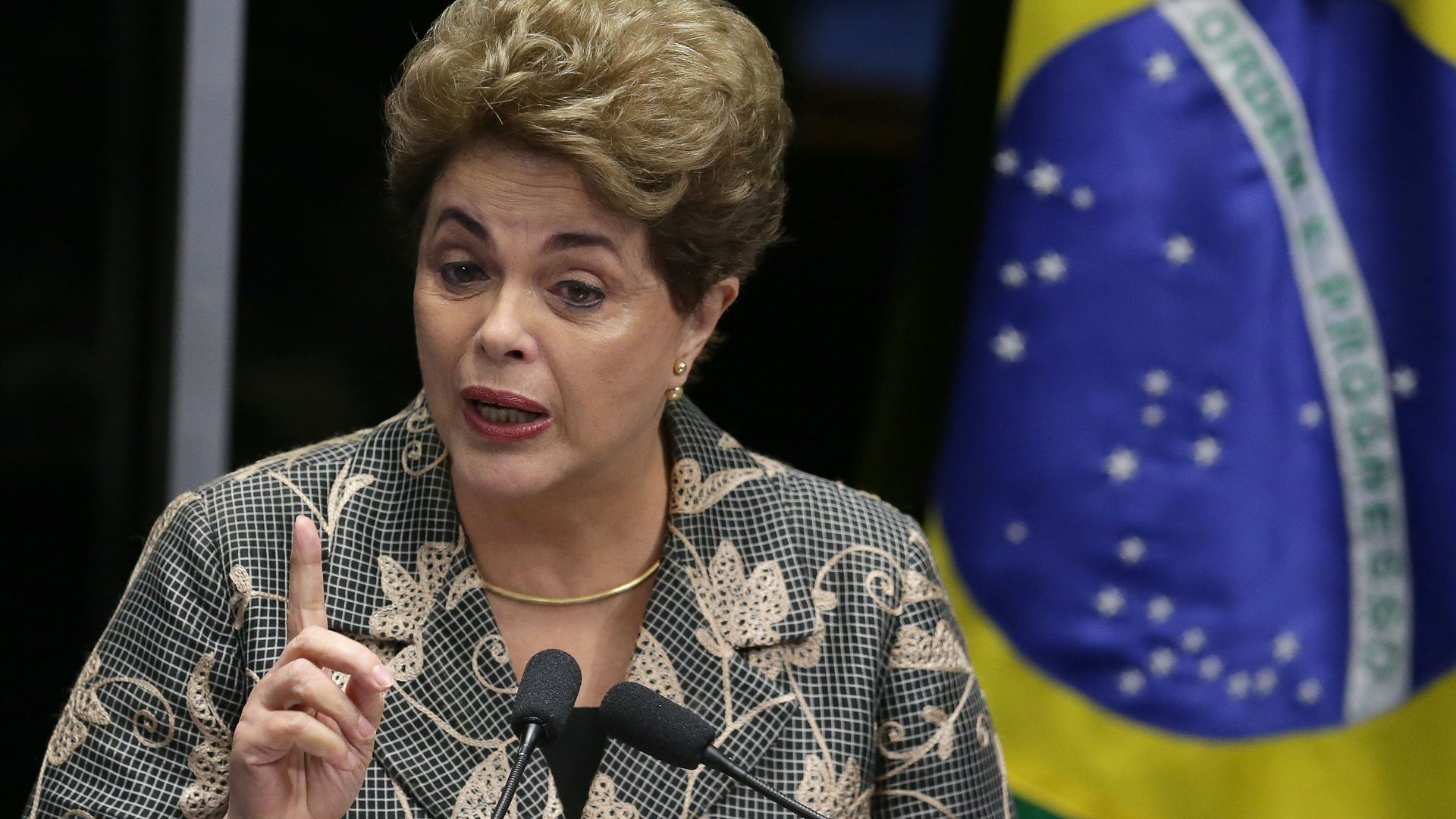Dilma Rousseff says her impeachment trial inflamed Brazil’s economic crisis
Brazil’s suspended president Dilma Rousseff appeared Aug. 29 before the senate to defend herself against impeachment, but she spent much of the time pointing her own finger at her accusers.


Brazil’s suspended president Dilma Rousseff appeared Aug. 29 before the senate to defend herself against impeachment, but she spent much of the time pointing her own finger at her accusers.
Instead of putting her on trial, she suggested, they should have tended to the country’s flagging economy.
Rousseff is charged with fudging the national budget to make Brazil’s deficit appear smaller. The impeachment process, which was launched by opposing party members, has dragged on since last October while Brazil went through the thick of its worst economic crisis in more than 80 years.
In her speech (link in Portuguese), Rousseff again denied any wrongdoing and accused the opposition of sabotaging her administration to gain power, without consideration to the collateral damage the political maneuvering has caused the Brazilian people. As evidence, she argued congress members have gone against their own stated economic ideology to thwart her proposals to fix the country’s dismal financial situation.
“They wanted to take advantage of the economic crisis, because they knew that if my government had overcome it, their aspirations of access to power would have been buried for a long period of time,” she said.
“The permanent political risk caused by the opposition’s activism ended up being a central element for the withdrawal of investment and the deepening of the economic crisis.”
Rousseff has a point. Political infighting and the impasse it generated at a time when Brazil should have been taking economic emergency measures was cited by analysts and rating agencies as a reason for downgrading the prospects of the Brazilian economy. But unfortunately for her, Brazil’s outlook has brightened a bit since she was suspended in May while awaiting results of the trial. Meanwhile, Brazil’s acting president, Michel Temer, has become somewhat of a market darling. Under his tenure, Brazil’s currency, the real, has strengthened against the dollar and the country’s stock market rallied; its Bovespa index is up 9% since he took over.
The senate will make their decision to impeach Rousseff or not sometime this week. If they oust her, Temer will then become president and serve the rest of her term.